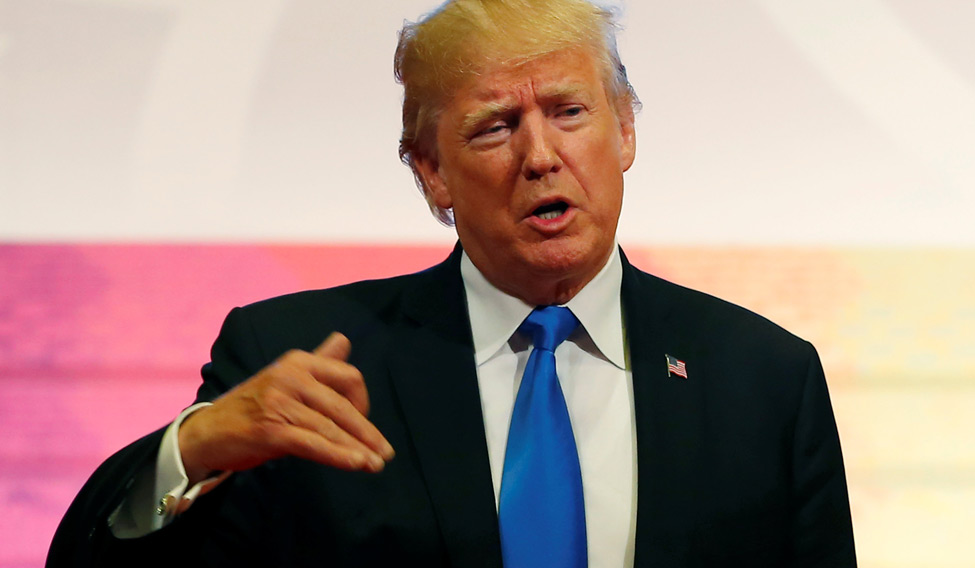In its first report after US President Donald Trump decertified Iranian compliance with the 2015 Joint Comprehensive Plan of Action, known popularly as the Iran nuclear deal, the International Atomic Energy Agency declared that Iran has been in full compliance with the restrictions imposed on its nuclear activity under the deal. IAEA inspectors, who verified Iranian nuclear facilities, announced on November 13 in their quarterly report that Iran's stockpiles of enriched uranium have not exceeded the agreed limit of 300kg and that the inspectors were given access to all the sites they wished to enter. This is the ninth successive instance that the IAEA has verified that Iran is in compliance with its commitments.
The announcement by the IAEA, however, is unlikely to deter Trump and his hawkish conservative supporters from going after the deal. Trump has once called it the “worst deal ever” and in his zeal to revoke every accomplishment of his predecessor Barack Obama, he could well pull out of the deal or force Iran out of it by refusing to honour American commitments under the six-nation deal. In October, Trump refused to certify that Iran was keeping up its end of the deal and under the US law, the Congress needs the president's certification to extend the law. Trump sent the agreement to the Congress asking it to fix issues that are not serving American national interest. The Congress has to act by December 12 to save the deal. Two Republican senators, Bob Corker of Tennessee, now a fierce critic of Trump, and Tom Cotton of Arkansas, seen by many as a potential presidential candidate in 2020, are working on a legislation which would threaten the reimposition of sanctions on Iran.
The US, meanwhile, finds itself alone in its ongoing brawl with Iran. The other five countries involved — the UK, France, Germany, Russia and China—are in support of the deal and are satisfied about Iranian compliance. European leaders are understandably livid that the deal, which was achieved through more than two years of intense negotiations held in Vienna, is being scuttled largely because of the personal whims of the US president. Trump is demanding retroactive amendments to the deal. Announcing the decertification of the deal Trump said he wanted to impose permanent restrictions on Iran from having a nuclear programme and asked the Congress to impose new sanctions on Iran's Islamic Revolutionary Guard Corps calling it a sponsor of terrorist groups in the region.
Trump seems to working in close coordination with Crown Prince Mohammed bin Salman of Saudi Arabia. After the November 5 crackdown in the kingdom in which eleven senior princes and several other prominent officials were apprehended, the Saudi government had accused Iran of disrupting peace in the Middle East. The resignation of Lebanese Prime Minister Saad Hariri, who announced his decision to quit as PM after fleeing Beirut and resurfacing in the Saudi capital, alleging that he was being targeted by Iran-backed Hezbollah has also added to the crisis. Equally worrying is the intensification of Saudi attacks on the Houthi rebels in Yemen, who according to the Saudis draw their support from Tehran. These events point towards a strengthening anti-Iran axis in the Middle East supported by the United States. Curiously, Trump's son-in-law Jared Kushner spent a week in Saudi Arabia just days before the November 5 crackdown.
Iran is unlikely to stick to the provisions of the nuclear deal if the US refuses to honour its commitments. Iran's primary motive to close the deal was to rejoin the larger global community and attract more business to the country. Because of the decades-long sanctions, Iran has been suffering a lot, especially after being kept out of latest advancements in science and technology. Sectors like healthcare and aviation have been facing major challenges and Iran was hoping that international businesses would return to the country. If that is not the case, Iran is likely to turn its back towards the deal and restart its nuclear programme. It is also keeping a close watch on how North Korea is openly challenging the US, solely on the strength of its nuclear weapons.
If the deal collapses, it would deal a major blow to the peace efforts in the Middle East as well. Iran going along the track of developing nuclear weapons will force Saudi Arabia and Egypt to follow suit, further destabilising the region. Such an eventuality will also aggravate the growing distrust between Europe and the US. Europe, which is already reeling under the effect of Brexit and the secession crisis in Spain, is growing more wary of the US. Trump's adverse comments on NATO and his demands about Europe picking up the tab for its external security have not gone down well with European leaders. Moreover, Trump is one of the most reviled global leaders in Europe, adding to the crisis. If the US chooses to reimpose sanctions on Iran, several European countries are likely to disassociate themselves from the move, exploring avenues to deal with Iran and protect the business interests of their companies already operating in or planning to operate in Iran. Two months ago, Austrian bank Oberbank concluded a deal with Tehran to manage investment projects in Iran. Financial executives from Germany, Denmark and Italy are in advanced talks on similar projects. There has been a 94 per cent increase in year-over-year trade between Iran and European companies.
Last month, Federica Mogherini, the foreign affairs head of the European Union, made the European position quite clear. “The Iranian deal is not a bilateral agreement. It does not belong to any single country. And, it is not up to any single country to terminate it,” she said. “We cannot afford as an international community, as Europe, for sure, to dismantle a European agreement that is working and delivering, especially now.”






